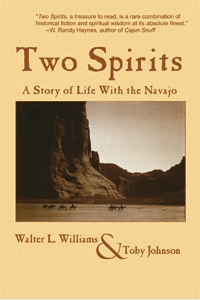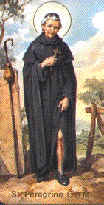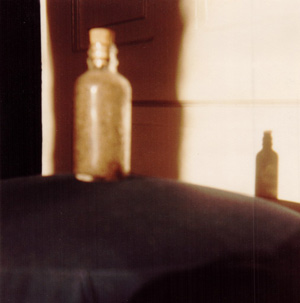Contact Us
Table of Contents
Search Site
Google listing of all pages on this website
Site Map
Toby
Johnson's Facebook page
Toby
Johnson's YouTube channel
Toby Johnson on Wikipedia
Toby
Johnson Amazon Author Page

Secure site at
https://tobyjohnson.com
Also on this
website:
As an Amazon Associate
I earn from qualifying purchases.
Toby
Johnson's books:
Toby's books are available as ebooks from
smashwords.com, the Apple iBookstore, etc.

FINDING
YOUR OWN TRUE MYTH: What I Learned
from Joseph Campbell: The
Myth
of the
Great Secret
III

GAY
SPIRITUALITY:
The Role of Gay Identity in the Transformation of Human Consciousness

GAY PERSPECTIVE:
Things Our Homosexuality Tells Us about the Nature of God and the
Universe

SECRET MATTER, a sci-fi novel with
wonderful "aliens" with an
Afterword by Mark Jordan

GETTING
LIFE IN PERSPECTIVE:
A
Fantastical Gay Romance set in two different time periods

THE FOURTH QUILL, a
novel about attitudinal healing and the problem of evil

TWO SPIRITS: A Story of Life with
the
Navajo, a collaboration with Walter L. Williams

CHARMED
LIVES: Spinning Straw into
Gold: GaySpirit in Storytelling, a collaboration with
Steve Berman and some 30 other writers

THE MYTH OF THE GREAT
SECRET:
An
Appreciation of Joseph Campbell

IN SEARCH OF GOD IN THE
SEXUAL UNDERWORLD: A Mystical Journey
Unpublished manuscripts
About ordering
Books on
Gay Spirituality:
White
Crane Gay Spirituality Series


Articles
and Excerpts:
Review of Samuel
Avery's The
Dimensional Structure of Consciousness
Funny
Coincidence: "Aliens Settle in San Francisco"
About Liberty Books, the
Lesbian/Gay Bookstore for Austin, 1986-1996
The Simple Answer to the Gay Marriage Debate
A
Bifurcation of Gay Spirituality
Why gay people should NOT Marry
The Scriptural Basis for
Same Sex Marriage
Toby and Kip Get Married
Wedding Cake Liberation
Gay Marriage in Texas
What's ironic
Shame on the American People
The "highest form of love"

Gay Consciousness
Why homosexuality is a sin
The cause of homosexuality
The
origins of homophobia
Q&A
about Jungian ideas in gay consciousness
What
is homosexuality?
What
is Gay Spirituality?
My three
messages
What
Jesus said about Gay
Rights
Queering
religion
Common
Experiences Unique to Gay
Men
Is there a "uniquely gay
perspective"?
The
purpose of homosexuality
Interview on the Nature of
Homosexuality
What the Bible Says about
Homosexuality
Mesosexual
Ideal for Straight Men
Varieties
of Gay Spirituality
Waves
of Gay Liberation Activity
The Gay Succession
Wouldn’t You Like to Be Uranian?
The Reincarnation of
Edward Carpenter
Why Gay Spirituality: Spirituality
as Artistic Medium
Easton Mountain Retreat Center
Andrew Harvey &
Spiritual Activism
The Mysticism of
Andrew Harvey
The
upsidedown book on MSNBC

Enlightenment
"It's
Always About You"
The myth of the Bodhisattva
Avalokitesvara
Joseph
Campbell's description of
Avalokiteshvara
You're
Not A Wave
Joseph Campbell Talks
about Aging
What is Enlightenment?
What is reincarnation?
How many lifetimes in an
ego?
Emptiness & Religious Ideas
Experiencing experiencing experiencing
Going into the Light
Meditations for a Funeral
Meditation Practice
The way to get to heaven
Buddha's father was right
What Anatman means
Advice to Travelers to India
& Nepal
The Danda Nata
& goddess Kalika
Nate Berkus is a bodhisattva
John Boswell was Immanuel Kant
Cutting
edge realization
The Myth of the
Wanderer
Change: Source of
Suffering & of Bliss
World Navel
What the Vows Really
Mean
Manifesting
from the Subtle Realms
The Three-layer
Cake
& the Multiverse
The
est Training and Personal Intention
Effective
Dreaming in Ursula LeGuin's The Lathe of Heaven

Gay
Spirituality
Curious
Bodies
What
Toby Johnson Believes
The
Joseph Campbell Connection
The
Mann Ranch (& Rich Gabrielson)
Campbell
& The Pre/Trans Fallacy
The
Two Loves
The
Nature of Religion
What's true about
Religion
Being
Gay is a Blessing
Drawing Long Straws
Freedom
of Religion

The
Gay Agenda
Gay
Saintliness
Gay
Spiritual Functions
The subtle workings of the spirit
in gay men's lives.
The Sinfulness of
Homosexuality
Proposal
for a study of gay nondualism
Priestly Sexuality
Having a Church to
Leave
Harold Cole on Beauty

Marian Doctrines:
Immaculate Conception & Assumption
Not lashed to the
prayer-post
Monastic or Chaste
Homosexuality
Is It Time to Grow
Up? Confronting
the Aging Process
Notes on Licking
(July, 1984)
Redeem Orlando
Gay Consciousness changing
the
world by Shokti LoveStar
Alexander Renault
interviews Toby
Johnson

Mystical Vision
"The
Evolution of Gay Identity"
"St. John of the
Cross & the Dark Night of
the Soul."
Avalokiteshvara
at the Baths
Eckhart's Eye
Let Me
Tell You a Secret
Religious
Articulations of the
Secret
The
Collective Unconscious
Driving as
Spiritual Practice
Meditation
Historicity
as Myth
Pilgrimage
No
Stealing
Next
Step in Evolution
The
New Myth
The Moulting of the Holy Ghost
Gaia
is a Bodhisattva

The Hero's
Journey
The
Hero's Journey as archetype -- GSV 2016
The Gay Hero Journey
(shortened)
You're
On Your Own
Superheroes

Seeing
Differently
Teenage
Prostitution and the Nature of Evil
Allah
Hu: "God is present here"
Adam
and Steve
The Life is
in the Blood
Gay retirement and the "freelance
monastery"
Seeing with
Different Eyes
Facing
the Edge: AIDS as an occasion for spiritual wisdom
What
are you looking for in a gay science fiction novel?

The Vision
The
mystical experience at the Servites' Castle in Riverside
A Most Remarkable
Synchronicity in
Riverside
The
Great Dance according to C.S.Lewis

The Techniques Of The
World Saviors
Part 1: Brer Rabbit and the
Tar-Baby
Part 2: The
Bodhisattva Avalokiteshvara
Part 3: Jesus
and the Resurrection
Part 4: A
Course in Miracles

The
Secret of the Clear Light
Understanding
the Clear Light
Mobius
Strip
Finding
Your
Tiger Face
How Gay Souls Get Reincarnated

Joseph
Campbell, the Hero's Journey, and the modern Gay Hero-- a five part
presentation on YouTube

About Alien Abduction
In
honor of Sir Arthur C Clarke
Karellen was a homosexual
The
D.A.F.O.D.I.L. Alliance
Intersections
with the movie When We Rise
More
about Gay Mental Health
Psych
Tech Training
Toby
at the California Institute
The
Rainbow Flag
Ideas for gay
mythic stories

People
Kip and Toby,
Activists
Toby's
friend and nicknamesake Toby Marotta.
Harry
Hay, Founder of the gay movement
About Hay and The New Myth
About
Karl
Heinrich Ulrichs, the first
man to really "come out"
About Michael Talbot, gay mystic
About Fr. Bernard Lynch
About Richard Baltzell
About Guy Mannheimer
About David Weyrauch
About
Dennis Paddie
About Ask the Fire
About
Arthur Evans
About
Christopher Larkin
About Mark Thompson
About Sterling Houston
About Michael Stevens
The Alamo Business
Council
Our friend Tom Nash
Second March on
Washington
The
Gay
Spirituality Summit in May 2004 and the "Statement
of Spirituality"

Book
Reviews
Be Done on Earth by Howard
E. Cook
Pay Me What I'm Worth by
Souldancer
The Way Out by Christopher
L Nutter
The Gay Disciple by John Henson
Art That Dares by Kittredge Cherry
Coming Out, Coming Home by Kennth
A. Burr
Extinguishing
the Light by B. Alan Bourgeois
Over Coffee: A conversation
For Gay
Partnership & Conservative Faith by D.a. Thompson
Dark Knowledge
by
Kenneth Low
Janet Planet by
Eleanor
Lerman
The
Kairos by Paul E. Hartman
Wrestling
with Jesus by D.K.Maylor
Kali Rising by Rudolph
Ballentine
The
Missing Myth by Gilles Herrada
The
Secret of the Second Coming by Howard E. Cook
The Scar Letters: A
Novel
by Richard Alther
The
Future is Queer by Labonte & Schimel
Missing Mary
by Charlene Spretnak
Gay
Spirituality 101 by Joe Perez
Cut Hand: A
Nineteeth Century Love Story on the American Frontier by Mark Wildyr
Radiomen
by Eleanor Lerman
Nights
at
Rizzoli by Felice Picano
The Key
to Unlocking the Closet Door by Chelsea Griffo
The Door
of the Heart by Diana Finfrock Farrar
Occam’s
Razor by David Duncan
Grace
and
Demion by Mel White
Gay Men and The New Way Forward by Raymond L.
Rigoglioso
The
Dimensional Stucture of Consciousness by Samuel Avery
The
Manly Pursuit of Desire and Love by Perry Brass
Love
Together: Longtime Male Couples on Healthy Intimacy and Communication
by Tim Clausen
War
Between Materialism and Spiritual by Jean-Michel Bitar
The
Serpent's Gift: Gnostic Reflections on the Study of Religion by
Jeffrey J. Kripal
Esalen:
America and the Religion of No Religion by Jeffrey J. Kripal
The
Invitation to Love by
Darren Pierre
Brain,
Consciousness, and God: A Lonerganian Integration by Daniel A
Helminiak
A
Walk with Four Spiritual Guides by Andrew Harvey
Can Christians Be Saved? by Stephenson & Rhodes
The
Lost Secrets of the Ancient Mystery Schools by Stephenson &
Rhodes
Keys to
Spiritual
Being: Energy Meditation and Synchronization Exercises by Adrian
Ravarour
In
Walt We
Trust by John Marsh
Solomon's
Tantric Song by Rollan McCleary
A Special Illumination by Rollan McCleary
Aelred's
Sin
by Lawrence Scott
Fruit
Basket
by Payam Ghassemlou
Internal
Landscapes by John Ollom
Princes
& Pumpkins by David Hatfield Sparks
Yes by Brad
Boney
Blood of the Goddess by William Schindler
Roads of Excess,
Palaces of
Wisdom by Jeffrey Kripal
Evolving
Dharma by Jay Michaelson
Jesus
in Salome's Lot by Brett W. Gillette
The Man Who Loved Birds by Fenton Johnson
The
Vatican Murders by Lucien Gregoire
"Sex Camp"
by
Brian McNaught
Out
& About with Brewer & Berg
Episode One: Searching for a New Mythology
The
Soul Beneath the Skin by David Nimmons
Out
on
Holy Ground by Donald Boisvert
The
Revotutionary Psychology of Gay-Centeredness by Mitch Walker
Out There
by Perry Brass
The Crucifixion of Hyacinth by Geoff Puterbaugh
The
Silence of Sodom by Mark D Jordan
It's
Never About What It's About by Krandall Kraus and Paul Borja
ReCreations,
edited by Catherine Lake
Gospel: A
Novel
by WIlton Barnhard
Keeping
Faith: A Skeptic’s Journey by Fenton Johnson
Dating the Greek Gods by Brad Gooch
Telling
Truths in Church by Mark D. Jordan
The
Substance of God by Perry Brass
The
Tomcat Chronicles by Jack Nichols
10
Smart
Things Gay Men Can Do to Improve Their Lives by Joe Kort
Jesus and the Shamanic Tradition of Same Sex Love
by Will Roscoe
The
Third Appearance by Walter Starcke
The Last Hours of Ancient Sunlight by Thom Hartmann
Surviving
and Thriving After a Life-Threatening Diagnosis by Bev Hall
Men,
Homosexuality, and the Gods by Ronald Long
An Interview
with Ron Long
Queering Creole Spiritual Traditons by Randy
Conner & David Sparks
An Interview with
Randy Conner
Pain,
Sex
and Time by Gerald Heard
Sex
and the Sacred by Daniel Helminiak
Blessing Same-Sex Unions by Mark Jordan
Rising Up
by
Joe Perez
Soulfully
Gay
by Joe Perez
That
Undeniable Longing by Mark Tedesco
Vintage: A
Ghost
Story by
Steve Berman
Wisdom
for the Soul by Larry Chang
MM4M a DVD
by Bruce Grether
Double
Cross
by David Ranan
The
Transcended Christian by Daniel Helminiak
Jesus
in Love by Kittredge Cherry
In
the Eye of the Storm by Gene Robinson
The
Starry Dynamo by Sven Davisson
Life
in
Paradox by Fr Paul Murray
Spirituality for Our Global Community by Daniel
Helminiak
Gay & Healthy in a Sick Society by Robert A.
Minor
Coming Out: Irish Gay Experiences by Glen O'Brien
Queering
Christ
by Robert Goss
Skipping
Towards Gomorrah by Dan Savage
The
Flesh of the Word by Richard A Rosato
Catland by
David Garrett Izzo
Tantra
for Gay Men by Bruce Anderson
Yoga
&
the Path of the Urban Mystic by Darren Main
Simple
Grace
by Malcolm Boyd
Seventy
Times Seven by Salvatore Sapienza
What
Does "Queer" Mean Anyway? by Chris Bartlett
Critique of Patriarchal Reasoning by Arthur Evans
Gift
of
the Soul by Dale Colclasure & David Jensen
Legend of the Raibow Warriors by Steven McFadden
The
Liar's
Prayer by Gregory Flood
Lovely
are the Messengers by Daniel Plasman
The Human Core of Spirituality by Daniel Helminiak
3001:
The Final Odyssey by Arthur C. Clarke
Religion and the Human Sciences by Daniel Helminiak
Only
the
Good Parts by Daniel Curzon
Four
Short
Reviews of Books with a Message
Life
Interrupted by Michael Parise
Confessions of a Murdered Pope by Lucien Gregoire
The
Stargazer's Embassy by Eleanor Lerman
Conscious
Living, Conscious Aging by Ron Pevny
Footprints Through the Desert by Joshua Kauffman
True
Religion by J.L. Weinberg
The Mediterranean Universe by John Newmeyer
Everything
is God by Jay Michaelson
Reflection
by Dennis Merritt
Everywhere
Home by Fenton Johnson
Hard Lesson by James
Gaston
God
vs Gay?
by Jay Michaelson
The
Gate
of Tears: Sadness and the Spiritual Path by Jay Michaelson
Roxie
&
Fred by Richard Alther
Not
the Son He Expected by Tim Clausen
The
9 Realities of Stardust by Bruce P. Grether
The
Afterlife Revolution by Anne & Whitley Strieber
AIDS
Shaman:
Queer Spirit Awakening by Shokti Lovestar
Facing the Truth of Your Life by Merle Yost
The
Super Natural by Whitley Strieber & Jeffrey J Kripal
Secret
Body by
Jeffrey J Kripal
In
Hitler's
House by Jonathan Lane
Walking on Glory by Edward Swift
The
Paradox
of Porn by Don Shewey
Is Heaven for Real? by Lucien Gregoire
Enigma by Lloyd Meeker
Scissors,
Paper, Rock by Fenton Johnson
Toby
Johnson's
Books on Gay Men's Spiritualities:

Gay Perspective
Things Our [Homo]sexuality
Tells Us
about the
Nature of God and
the Universe
Gay
Perspective is available as an audiobook narrated
by Matthew Whitfield. Click
here

Gay Spirituality
Gay Identity and
the Transformation of
Human Consciousness
Gay
Spirituality is now
available as an audiobook, beautifully narrated by John Sipple. Click here

Charmed
Lives: Gay Spirit in Storytelling
edited by
Toby Johnson
& Steve Berman

Secret
Matter
Lammy Award Winner for Gay
Science Fiction
updated

Getting Life in
Perspective
A Fantastical Romance
Getting
Life in Perspective is available as an
audiobook narrated by Alex Beckham. Click
here

The Fourth Quill
originally published
as
PLAGUE

The Fourth Quill is
available
as an audiobook, narrated by Jimmie
Moreland. Click here

Two Spirits: A Story of
Life
with the Navajo
with Walter L. Williams
 Two
Spirits is available as an
audiobook narrated by Arthur Raymond. Click
here Two
Spirits is available as an
audiobook narrated by Arthur Raymond. Click
here

Finding
Your Own True Myth: What I Learned from Joseph
Campbell
The
Myth
of the
Great Secret III

In Search of God in the Sexual Underworld

The Myth of the Great
Secret: An Appreciation of Joseph Campbell.
This
was the second edition of this book.

Toby Johnson's
titles are
available in other ebook formats from Smashwords.
|
We are all wanderers here

The Myth of the Wanderer has always had personal meaning for me. In my
Catholic religious life experience, when I was with the Servites, I
took the religous name Peregrine. St Peregrine was a Servite in the
14th century. The word "peregrine" means wanderer or pilgrim. Peregrine
falcons are called such because it used to be thought they made no nest
and so were always moving from place to place (that's only partly true).
Here's a link to a page about St.
Peregrine and peregrination.

The story in my novel Getting
Life in Perspective
appeals to the Wanderer Myth. It's got a novel-within-the-novel that is
set in the late 1800s at the time of the Tramp Movement. The characters
hop freight trains and stay in tramp campgrounds on their way to
discovering
a "gay utopian colony" out west in the Rockies.
Here's a Code of Ethics agreed to by a convention of "hobos" in 1889.
Hobo was the next generation of wanderers after the tramps.
The Hobo Code of Ethics
At the 1889
National Hobo Convention in St. Louis, a strict ethical code was
established for all hobos to follow. Here are some tips we could all
use, no matter what you carry in your rucksack.
1. YOU DO YOU.
"Decide your own life, don't let another person run or rule you."
2. SHOW SOME RESPECT.
"When in town, always respect the local law and officials, and try to
be a gentleman at all times."
3. DON'T BE AN OPPORTUNIST.
"Don't take advantage of someone who is in a vulnerable situation,
locals or other hobos."
4. GET A JOB.
"Always try to find work, even if temporary, and always seek out jobs
nobody wants. By doing so you not only help a business along, but
ensure employment should you return to that town again."
5. BE A SELF-STARTER.
"When no employment is available, make your own work by using your
added talents at crafts."
6. SET A GOOD EXAMPLE.
"Do not allow yourself to become a stupid drunk and set a bad example
for locals' treatment of other hobos."
7. BE MINDFUL OF OTHERS.
"When jungling in town, respect handouts, do not wear them out, another
hobo will be coming along who will need them as badly, if not worse
than you."
8. DON'T LITTER.
"Always respect nature, do not leave garbage where you are jungling."
9. LEND A HAND.
"If in a community jungle, always pitch in and help."
10. PRACTICE GOOD HYGIENE.
"Try to stay clean, and boil up wherever possible."
11. BE COURTEOUS WHEN YOU'RE RIDING THE RAILS ...
"When traveling, ride your train respectfully, take no personal
chances, cause no problems with the operating crew or host railroad,
act like an extra crew member."
12. ... AND WHEN YOU'RE NOT.
"Do not cause problems in a train yard, another hobo will be coming
along who will need passage through that yard."
13. HELP OUT THE KIDS.
"Help all runaway children, and try to induce them to return home."
14. SAME GOES FOR HOBOS.
"Help your fellow hobos whenever and wherever needed, you may need
their help someday."
15. LEND YOUR VOICE.
"If present at a hobo court and you have testimony, give it. Whether
for or against the accused, your voice counts!"
What a wonderful statement of human ethics! It doesn't
give
commandments or laws. These are not handed down from God above. The
code derives from compassion and human experience.
From my experience of the Counterculture of the 60s and 70s and my life
in San Francisco (I lived at one time in an apartment on the actual corner of Haight &
Ashbury), I think the word "hippie" could be substituted for
"hobo" every time.
And, for that mattter, "homosexual" or "gay man."
Isn't this what the notion of HOMINTERN was about? The brotherhood of
gay men around world--and sisterhood of lesbians--who help and support
one another because of a "secret understanding between them when they
meet." (For more about
this quote…)
~ ~ ~
About the Myth of the Wanderer
from Hermann Hesse's
Narcissus and Goldmund
“Obedient to no man, dependent only on weather
and season, without a goal before them or a roof above them, owning
nothing, open to every whim of fate, the homeless wanderers lead their
childlike, brave, shabby existence. They are the sons of Adam, who was
driven out of Paradise; the brothers of the animals, of innocence. Out
of heaven's hand they accept what is given them from moment to moment:
sun, rain, fog, snow, warmth, cold, comfort, and hardship; time does
not exist for them and neither does history, or ambition, or that
bizarre idol called progress and evolution, in which houseowners
believe so desperately. A wayfarer may be delicate or crude, artful or
awkward, brave or cowardly—he is always a child at heart, living in the
first day of creation, before the beginning of the history of the
world, his life always guided by a few simple instincts and needs. He
may be intelligent or stupid; he may be deeply aware of the fleeting
fragility of all living things, of how pettily and fearfully each
living creature carries its bit of warm blood through the glaciers of
cosmic space, or he may merely follow the commands of his poor stomach
with childlike greed—he is always the opponent, the deadly enemy of the
established proprietor, who hates him, despises him, or fears him,
because he does not wish to be reminded that all existence is
transitory, that life is constantly wilting, that merciless icy death
fills the cosmos all around.”
I used to read this to myself over and over as a
reminder of Buddha's discovery of impermanence. It's glorifying, of
course, what is in fact a burden and a tragedy today. Being homeless in
modern America is not the same thing as being a pilgrim in the middle
ages. Though I hope today's homeless wanderers can find some meaning in
their lives by referencing this myth. In the excerpt from The Myth
of the Great Secret below, I offer an example of a homeless man who
seemed to be living out the myth.
For us, I think this myth reminds us to live in the present "now"
moment, to acknowledge the fragility of life and the inherent danger of
being alive.
The Buddha was a wanderer.
Jesus was a wanderer.
As songwriter/poet Leonard Cohen reminds us--with a slight variation
from land to sea:
"And Jesus was a sailor, when he walked upon the
water, And he spent a long time watching, From his lonely wooden tower
and when he knew for certain, only drowning men could see him, he said
'All men shall be sailors then, until the sea shall free them'."
Wanderer/Sailor
In C.S. Lewis's Perelandra,
a novel set in a waterworld where "islands" of seaweed mat float and
drift across the sea and there is only one small "continent" that is
solid called the "Fixed Land," the "original sin" was sleeping
overnight on the Fixed Land, wanting to know what the future held and
trying
to control one's own fate, taking one's hand out of God's, to say to
God "this, but not that," to live on solid ground, not on the waves of
the
sea.
~ ~ ~
Here's an excerpt from The Myth of the Great Secret: An
Appreciation of Joseph Campbell
CHAPTER 7
THE PATH OF THE WANDERER
Eternity isn’t some later time. Eternity isn’t a long time. Eternity
has nothing to do with time. Eternity is that dimension of here and now
which thinking and time cuts out. This is it. And if you don’t get it
here, you won’t get it anywhere. And the experience of eternity right
here and now is the function of life.
There’s a wonderful formula that the
Buddhists have for the Bodhisattva, the one whose being (sattva)
is enlightenment (bodhi),
who realizes his identity with eternity and at the same time his
participation in time. And the attitude is not to withdraw from the
world when you realize how horrible it is, but to realize that this
horror is simply the foreground of a wonder and to come back and
participate in it.”
(Joseph Campbell, The Power of Myth
video, II)

We are each a self—and the Self—searching through our
store of experiences, past and present (which is the world), to find a
path and to create a future. Each of us is constructing a life story.
We are all wanderers, seeking the face of God. It is our heritage. Adam
was a wanderer, walking with God in the cool of the evening, beholding
God face to face, living open to every new experience as a further
revelation of the divine presence. That weary afternoon at the castle,
I experienced an enlightened moment and beheld the face behind the veil
of my time-and-space reality. I have beheld God face to face. (See Intimations)
Indeed, in each face into which I have looked I have beheld God. That
was the revelation of that day. Likewise, early twentieth-century
English mystic Caryll Houselander described a period of a few days in
her life during which she saw the face of Christ behind that of every
person on the street. I have come to understand this Truth, but most of
the time my sense of it is only very intellectual and distant. But now
and then, behind certain faces the divine presence becomes especially
real, and a person who might otherwise have been just another person on
the street becomes a manifestation of transcendent mythical reality.
One night, I was with friends in front of a theater in the San
Francisco’s North Beach area. A friend and fellow former Servite was
acting in Ken Kesey’s One Flew Over the Cuckoo’s Nest. A young
man engaged me in conversation. I was at first a little put off. He was
disheveled, his clothes crumpled and worn, his face and hands dirty.
But his eyes were bright and alive and his smile captivating. I ended
up standing there in the street for an hour or more while he told me
about himself.
He said his name was Monty. He was in his early thirties. He’d been an
executive in an advertising firm, he said, successful according to
American standards. He had, however, come to feel that the security and
success of his career were an impediment to his spiritual growth. He
felt that there was no challenge left to his soul. And so one day—I
imagine in the fervor of conviction—he quit his job, sold or gave away
his belongings, gave up his apartment, and went to live on the streets.
He was surviving by living simply and frugally, foraging food,
occasionally accepting an invitation to stay at someone’s house (in
those days before the explosion of homelessness in America, it wasn’t
hard to get an invitation to crash some place in San Francisco),
depending on Providence, and overcoming desire. Overcoming desire, he
said, was the most necessary thing if the spiritual life were to
prosper.
He never asked me for money, but I did give him my address and invited
him to visit. A couple of days later, just after supper, Monty came to
the house. He had been at the beach to watch the sunset. I was living
then with four others in a house near the ocean. I invited him in and
fixed some food for him. He was grateful.
I spent a long time talking with him. I was deeply affected by his
decision to be a wanderer. He seemed to be living the mendicant life in
a way that put to shame my safe, protected, and institutionalized
attempts. I wondered if I should try to follow his example. I was
frightened by that thought.
It got late. I invited him to sleep over. He accepted. But when I
offered to prepare a bed for him, he declined. Fighting the temptation
to need comfort, he said, was the hardest part of his life choice. The
luxury of the bed would only make that temptation worse. He preferred
to sleep on the floor in the living room. The next morning he left and
I have never seen him again.
Late that night, as I wrestled with the example of mendicancy he
presented me, he took on a magical aura. He held me loosely in his arms
to comfort me and told me that my life—like the lives of all of us, I
suppose—would be full of suffering and that, even so, I would make it
through. He said I’d been right to choose the bodhisattva’s path. He
said it was not the suffering I had to fear, but the fear of it. Most
any suffering we can survive; few hardships are so terrible that they
destroy the soul. But what will destroy the soul, cause it to wither up
and die unnoticed, he said, is the fear of suffering that builds up
walls around the heart and keeps out the life. The sources of that fear
are anger that things are the way they are and not as we’d like them to
be and desire that they be different from the way they are.
The message of Monty’s appearance in my life was, perhaps, that what
mendicancy really means is not so much destitution—though it probably
does demand basic simplicity—or lack of security, but the willingness
to accept life as it comes. There’s nothing in itself wrong with making
plans for the future or keeping a savings account. But there probably
is something damaging to the spiritual life in trying to make sure that
every possible future is foreseen and every exigency accounted for.
Such an attitude restricts the life and limits experience. Fear and
desire must be overcome, because until they are one can never enjoy
what is actual.
The cynicism that my training in psychiatry has taught me argues that
Monty was schizophrenic, compensated enough to survive on his own, but
living in a dreamworld. I wonder if his dreamworld wasn’t a better
place than the collective dreamworld the rest of us live in.
 Despite the madness that might have characterized Monty’s psychology,
he was for me an “incarnation” of the Buddha. In my interpretation of
my life, I can see how he had passed beyond the polarities and awakened
from the dream of the world. I can understand how he presented me with
a clue to the meaning of my own life-dream. The day Monty came to
visit, he brought me a present. It was a small glass bottle, encrusted
inside with sea sand and smelling faintly of spearmint. He’d found it
on the beach. Perhaps it came from far away. I still have it, a
souvenir of my wandering, my present from the Buddha.
Despite the madness that might have characterized Monty’s psychology,
he was for me an “incarnation” of the Buddha. In my interpretation of
my life, I can see how he had passed beyond the polarities and awakened
from the dream of the world. I can understand how he presented me with
a clue to the meaning of my own life-dream. The day Monty came to
visit, he brought me a present. It was a small glass bottle, encrusted
inside with sea sand and smelling faintly of spearmint. He’d found it
on the beach. Perhaps it came from far away. I still have it, a
souvenir of my wandering, my present from the Buddha.
|



![]()
